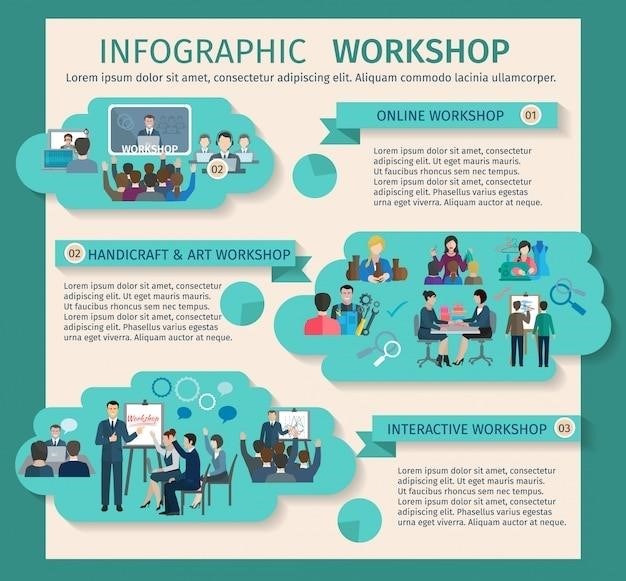Sociology⁚ A Brief Introduction ー Article Plan
Sociology is the study of human social life, groups, societies, and social change. It was coined as a term in 1838 by French philosopher Auguste Comte, who is considered the “father of sociology.” Sociology is a vast and complex field of study that encompasses a wide range of topics, including social inequality, social institutions, social movements, and culture. Sociology is a valuable tool for understanding the world around us, and it can help us to make sense of the complex social problems that we face. Sociology is a relatively new field of study, but it has already made significant contributions to our understanding of the world. It is an important field of study that can help us to understand the world around us and to make positive changes in our society.
What is Sociology?
Sociology is a social science that examines the social lives of people, groups, and societies. It is a multifaceted field that explores the structures, processes, and dynamics of human social interaction, focusing on how individuals are shaped by and contribute to the larger social context. Sociologists study a wide range of topics, including social inequality, social institutions, social movements, culture, and globalization. They strive to understand the intricate ways in which social forces influence individual behaviors, beliefs, and experiences. Sociology is not merely about observing social phenomena but delving deeper into the underlying causes and consequences of social patterns. It seeks to uncover the social structures, norms, and power dynamics that shape human interaction and social outcomes. In essence, sociology provides a framework for understanding the complexities of human society and the interconnectedness of individuals within it.
The Sociological Perspective
The sociological perspective is a unique way of looking at the world that emphasizes the importance of social context in shaping individual behavior and experiences. It challenges us to see beyond our individual perspectives and recognize the broader social forces that influence our lives. This perspective encourages us to question assumptions, challenge common sense notions, and examine social patterns that might otherwise go unnoticed. A key concept in sociology is the “sociological imagination,” coined by C. Wright Mills. This refers to the ability to understand the connection between individual experiences and larger social forces. It involves recognizing how personal troubles are often rooted in public issues. For example, an individual’s unemployment might be linked to broader economic trends or social policies. The sociological perspective helps us to understand the complexities of social life and to see the world from multiple viewpoints. It encourages critical thinking and a deeper understanding of social issues, empowering us to engage in meaningful social change.

The History of Sociology
Sociology, as a formal discipline, emerged in the 19th century during a period of profound social change in Europe. The Industrial Revolution, urbanization, and the rise of capitalism created new social problems and prompted scholars to examine the nature of society and its impact on individuals. One of the key figures in the development of sociology was Auguste Comte, a French philosopher who coined the term “sociology” in 1838. Comte believed that society could be studied scientifically, using methods similar to those employed in the natural sciences. He envisioned sociology as a positivist discipline that would uncover the laws governing social behavior. Other prominent early sociologists included Émile Durkheim, Karl Marx, and Max Weber. Durkheim emphasized the importance of social solidarity and the role of social institutions in maintaining order. Marx focused on the conflict between social classes and the dynamics of capitalism. Weber explored the influence of culture and rationality on social change. The early sociologists laid the foundation for the development of sociology as a distinct field of study. Their work continues to be influential today, providing insights into the social world and shaping our understanding of social phenomena.
Major Theoretical Perspectives in Sociology
Sociology is not a monolithic discipline; it encompasses a variety of theoretical perspectives that offer different ways of understanding the social world. These perspectives provide frameworks for analyzing social phenomena, identifying patterns, and explaining social change. Three major theoretical perspectives dominate sociological thought⁚ functionalism, conflict theory, and symbolic interactionism. Functionalism, also known as structural functionalism, views society as a complex system with interconnected parts working together to maintain stability and equilibrium. Each part, like institutions or social roles, contributes to the overall functioning of the system. Conflict theory emphasizes power struggles and inequalities within society. It focuses on how social structures and institutions, particularly those based on class, race, gender, or other social divisions, perpetuate conflict and disadvantage. Symbolic interactionism focuses on micro-level social interactions and the meanings people attach to symbols, language, and gestures. It highlights how individuals construct their social realities through shared understandings and interpretations. These theoretical perspectives provide valuable tools for analyzing the social world, but they also have limitations. They offer different lenses through which to view society, and they can be used to explain a wide range of social phenomena. Understanding these perspectives is crucial for comprehending the complexity of social life and engaging in critical analysis of social issues.

The Research Process in Sociology
Sociologists use a systematic research process to gather data, analyze information, and draw conclusions about social phenomena. This process involves a series of steps, from formulating research questions to interpreting findings. The first step typically involves defining a research problem or question. Sociologists then review existing literature to gain a better understanding of the topic and identify gaps in knowledge. Next, they develop a research design, which outlines the methods they will use to collect data. Common research methods in sociology include surveys, interviews, experiments, and participant observation. Data collection is a crucial stage where sociologists gather information relevant to their research questions. Once data is collected, it is analyzed using statistical techniques or qualitative methods to identify patterns and trends. Finally, sociologists interpret their findings and draw conclusions about the social phenomena they are studying. The research process in sociology is iterative, meaning that findings can lead to new questions and further research. This ongoing process of inquiry contributes to the development of sociological knowledge and understanding of the social world.
Culture and Society
Culture is a defining element of human societies, encompassing the shared beliefs, values, norms, behaviors, and material objects that shape a group’s way of life. It is a complex system of knowledge, attitudes, and behaviors that are transmitted from one generation to the next. Culture is learned, not innate, and it is constantly evolving as societies interact with each other and experience change. It is vital for social cohesion, providing shared meanings and understandings that guide individuals’ actions and interactions. Culture includes both material culture, such as technology, clothing, and art, and nonmaterial culture, which encompasses ideas, values, and beliefs. The concept of culture is central to sociological analysis, as it helps us understand how societies are structured, how individuals navigate social relationships, and how social change occurs. Culture influences everything from how we dress and eat to how we view the world and interact with others. Understanding culture is essential for developing a sociological perspective and for appreciating the diversity of human experiences.
Socialization and the Life Course
Socialization is the lifelong process through which individuals learn the values, beliefs, norms, and behaviors of their society. It is a fundamental aspect of human development, shaping our identities, personalities, and social skills; Socialization begins at birth and continues throughout our lives, with various agents of socialization playing a role in this process. Family, education, peers, and the media are key institutions that transmit cultural knowledge and expectations. Through socialization, we acquire the skills and knowledge necessary to participate in society, navigate social interactions, and contribute to the collective good. The life course perspective highlights the various stages of life, each with its own set of social expectations and challenges. From childhood to adolescence, adulthood, and old age, individuals encounter different social roles and responsibilities that influence their experiences and shape their identities. Socialization is a dynamic process, constantly adapting to changing social contexts and individual experiences. It is a crucial mechanism for social reproduction, ensuring the continuity of societal norms and values across generations.
Social Interaction and Groups
Social interaction is the foundation of social life, encompassing the ways in which individuals communicate and relate to one another. It is a complex and dynamic process, influenced by social norms, cultural values, and individual motivations. Through social interaction, we establish relationships, build communities, and shape our understanding of the world. Groups are essential components of social life, providing individuals with a sense of belonging, support, and shared identity. From small, intimate groups like families and close friends to large, formal organizations like corporations and governments, groups play a crucial role in shaping our experiences and influencing our behavior. Group dynamics, including leadership styles, power structures, and conformity pressures, can significantly impact individual actions and group outcomes. The study of social interaction and groups provides valuable insights into human behavior, social structures, and the processes of social change.
Social Stratification and Inequality
Social stratification refers to the hierarchical arrangement of individuals and groups in a society based on factors such as wealth, income, education, occupation, and social status. This system of social layering creates inequalities in access to resources, opportunities, and power. Social stratification can be based on various factors, including class, race, ethnicity, gender, and age. These inequalities can manifest in disparities in health, education, housing, and political influence, leading to social divisions and tensions. Sociologists study social stratification to understand how these inequalities are created, maintained, and challenged. They examine the impact of stratification on individuals and society as a whole, exploring issues such as poverty, wealth inequality, and social mobility. Understanding social stratification is crucial for addressing social justice concerns and promoting a more equitable society.
Global Sociology
Global sociology examines the interconnectedness of societies and cultures across the globe. It explores how globalization, migration, and technological advancements have reshaped social structures, interactions, and identities. Global sociologists investigate issues such as global inequality, transnational corporations, international organizations, and the spread of cultural trends. They analyze how social problems like poverty, environmental degradation, and conflict are intertwined across borders and how these problems are shaped by global power dynamics. Global sociology seeks to understand the impact of globalization on local communities, the role of global institutions in shaping social change, and the emergence of new forms of social movements in a globalized world. By studying global social processes, global sociology aims to foster a more nuanced understanding of the challenges and opportunities facing humanity in an increasingly interconnected world.

